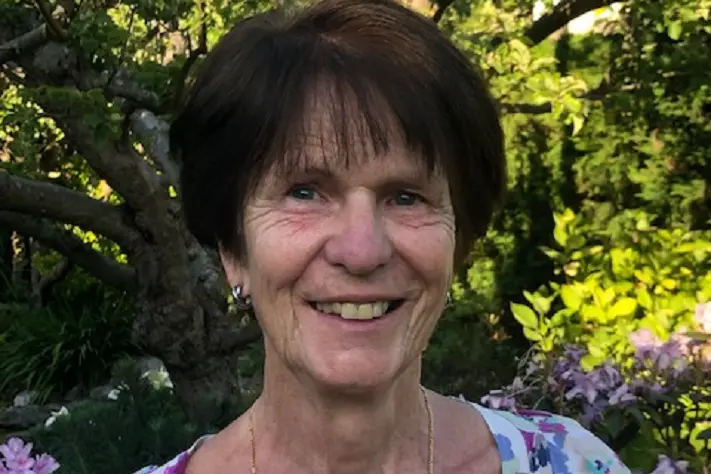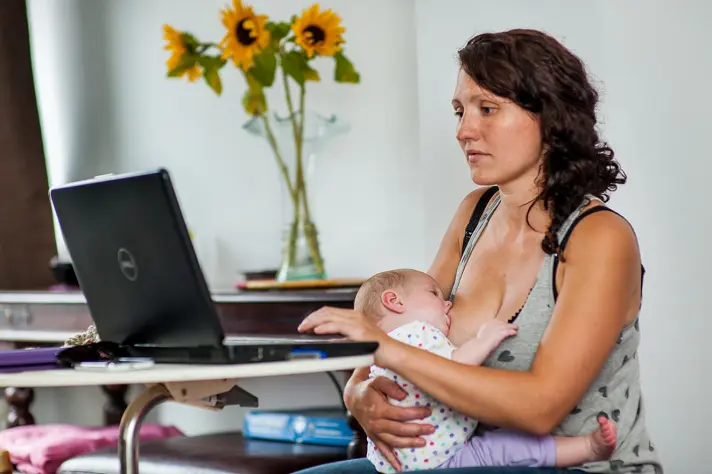2nd June 2020
During #BreastfeedingCelebrationWeek, a blog by Dr Alison Spiro, Specialist Health Visitor, on breastfeeding during the COVID-19 crisis.

Dr Alison Spiro, Specialist Health Visitor
There is currently no evidence to suggest that COVID-19 can be transmitted through breastmilk. The main risk is through the close contact with infected parents and not the method of feeding (Start4life 2020). The extensive evidence-base indicates that breastfeeding conveys not only life-long benefits to the child, but also anti-viral factors and antibodies, which are likely to offer babies some protection against COVID-19.
Parents with active COVID-19 infection are encouraged to wear fluid-resistant masks (Unicef UK Baby Friendly Initiative) when holding their babies and practise strict hygiene measures, such as sterilising all feeding equipment and breast pumps, hand washing before and after touching their babies, using anti-bacterial hand gel and cleaning all household surfaces regularly.
Current evidence suggests the benefits of breastfeeding outweigh any potential risks to the child getting the virus (through breastmilk or by being in close contact).

Paul Carter photographer
Let’s celebrate why breastfeeding matters to babies and families:
- Breastmilk is always the most appropriate nutrition for a baby and changes over time according to the age of the baby.
- Breastmilk is personalised medicine with active ingredients such as hormones, anti-inflammatory molecules, oligosaccharides, stem cells, long-chain fatty acids, and antibodies.
- It helps a baby’s brain grow through close contact with the mother which helps the baby develop close attachment and feelings of security and trust.
- Children who were breastfed as babies are more likely to achieve higher levels of education and better job prospects.
- Babies who are breastfed have fewer bacterial and viral infections; lower rates of sudden infant death (SIDS); a healthier microbiome leading to a stronger immune system; less likely to become obese or develop Type 2 diabetes; fewer other non-communicable diseases and a reduced chance of developing allergies. This results in fewer GP consultations and hospital admissions and an annual saving to the NHS of over £40 million a year (Renfrew, 2012).
- Mothers have less ovarian and breast cancer, and lose their weight gained in pregnancy more quickly. They are less likely to suffer from postnatal depression, if they receive adequate support with breastfeeding and achieve their infant feeding goals (Borra, 2015).
How can parents get enough support during Lockdown?
This is such a difficult, lonely time for new parents, so taking longer to build confidence and self-efficacy in their feeding and parenting skills. They are separated from their families and friends, as well as having little face-to-face contact with midwives and health visitors. Supporting close and loving relationships between both parents and their child, regardless of the feeding method, to provide food, love and comfort, will benefit the baby’s emotional development and the parents’ mental health.
Some NHS trusts and voluntary breastfeeding organisations, as well as local initiatives, have established online breastfeeding antenatal classes and virtual postnatal support, one-to-one online contact with health visitors, or the infant feeding teams. Where these are missing or mothers ask for additional support, health visitors are in a position where they can signpost mothers to breastfeeding charities. The National Breastfeeding Helpline enables parents to access trained breastfeeding counsellors directly and information on other breastfeeding charities helplines could be given to mothers at the health visitors’ antenatal contact (see list of organisations supporting breastfeeding during COVID-19 at the end of the iHV Parent Tips: Supporting breastfeeding during COVID-19).
NB. Dorset NHS offers an excellent free online antenatal course: www.dorsethealthcare.nhs.uk/breastfeedingcourse
Dr Alison Spiro, Specialist Health Visitor
More information
- Unicef Baby Friendly UK Statement on Supporting breastfeeding during the COVID-19 pandemic – https://www.unicef.org.uk/babyfriendly/infant-feeding-during-the-covid-19-outbreak/
- Guidance from the Royal College of Obstetricians – https://www.rcog.org.uk
- Information on COVID-19 and breastfeeding from Start4life – https://www.nhs.uk/start4life/baby/coronavirus-covid19-advice-for-parents/
- The Lancet Breastfeeding Series papers www.thelancet.com/series/breastfeeding
Breastfeeding in the 21st century: epidemiology, mechanisms, and lifelong effect.
http://www.thelancet.com/journals/lancet/article/PIIS0140-6736(15)01024-7/abstract - Renfrew, M. Unicef UK (2012), Preventing Disease and Saving Resources, https//unicef.org.uk/babyfriendly/baby-friendly-resources/advocacy/preventing-disease-and-saving-resources/
- Borra ,C., Iacovou, M., Sevilla, A. ‘New Evidence on Breastfeeding and Postpartum Depression: The Importance of Understanding Women’s Intentions’ Maternal and Child Health Journal. 2015; Volume 19, Issue 4: 897-907


